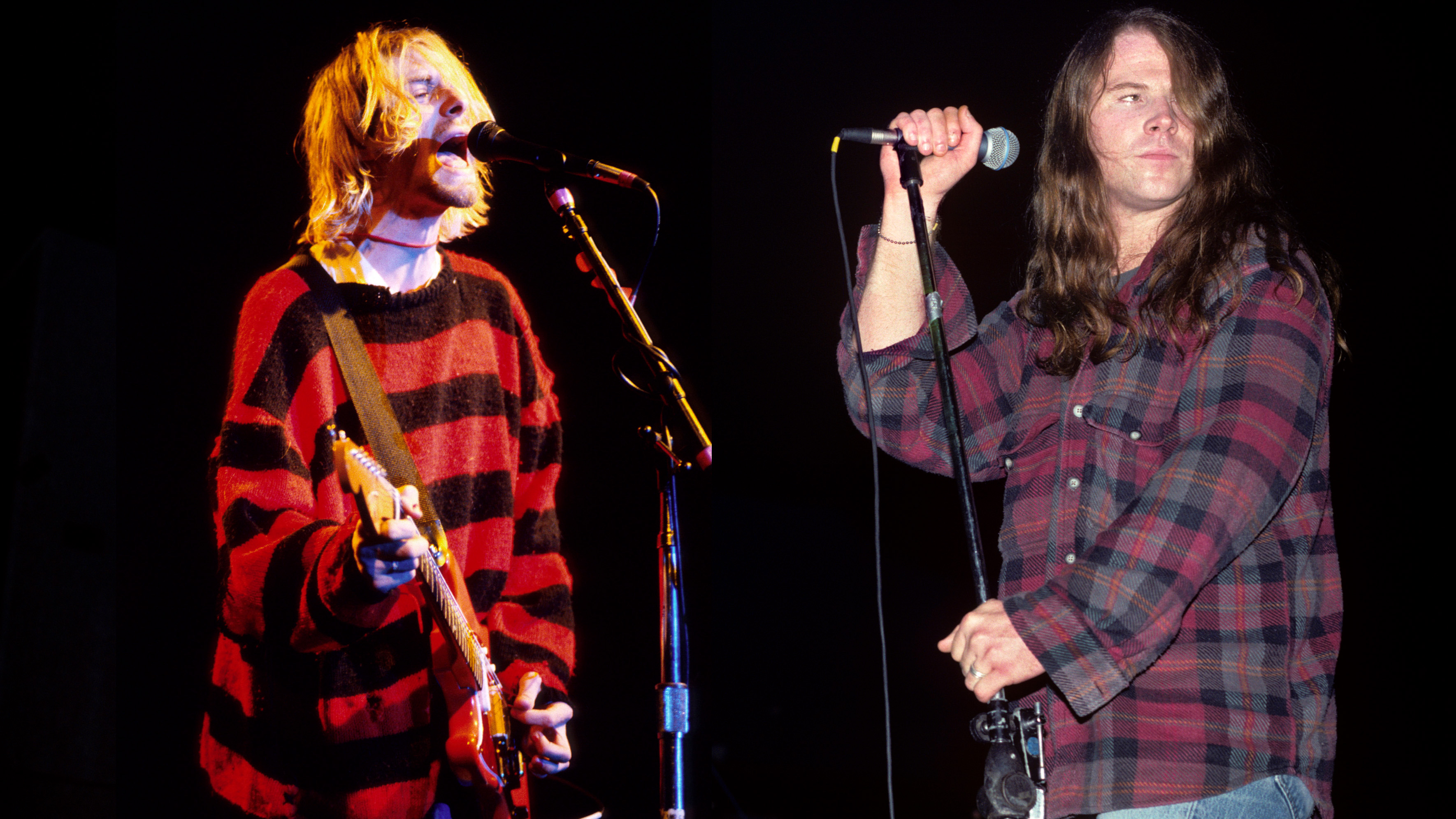
Want all the hottest music and gear news, reviews, deals, features and more, direct to your inbox? Sign up here.
You are now subscribed
Your newsletter sign-up was successful
It's no revelation that the late Mark Lanegan and Kurt Cobain were friends, with a deep respect for each other as musicians. There were plans to take that further in a musical project before Cobain's death in 1994, but a new book suggests their collaboration had already extended to a previously unknown level; Lanegan may have co-writtien a song on Nirvana's breakthrough album Nevermind.
Mark Lanegan's former Queens Of The Stone Age bandmate Nick Olivieri claims in Greg Prato's forthcoming book, 'Lanegan' that the Screaming Trees frontman helped write lyrics for the song alongside Cobain, but was uncredited.
It was a returned favour of sorts for Cobain contributing guitar and vocals to Lanegan's 1990 debut solo album.
“Mark said he wrote some lyrics on Something in the Way with Kurt on Nevermind,” Oliveri tells Prato in the book. “But Kurt had played on some of Mark’s solo stuff, The Winding Sheet. So, instead of getting paid, they just did this thing where, ‘Hey man, I added a lyric on your song and you added a lyric on my song.
"Let’s just call it even. Whatever happens, happens.’ Little did Mark know, if he would have had publishing on Something In The Way on Nevermind, he would have had a lot of money," adds Olivieri. "I remember him kicking himself in the butt a little bit about that – ‘If I had that ‘Something in the Way’ publishing…””
The two musicians shared a love of blues musician Leadbelly – whose song Where Did You Sleep Last Night? would be immortalised by Nirvana as the closer for their 1993 MTV Unplugged performance. But the duo had already recorded their own take on it before then for The Winding Sheet with Cobain contributing guitar and his Nirvana bandmate Krist Novoselic tracking bass. Cobain also appears on the Lanegan original Down In The Dark from the same album, contributing vocal parts.
I remember Courtney leaving me a letter saying, 'Kurt loved you as a big brother and would have wanted you to live. The world needs you to live'
I had failed him when he needed me most
Following Cobain's death, Courtney Love maintained a connection with Lanegan – proactively pushing him to go to rehab, a move that eventually saved his life, according to Lanegan himself in his own 2020 memoir Sing Backwards And Weep.
Want all the hottest music and gear news, reviews, deals, features and more, direct to your inbox? Sign up here.
"She was directly involved in saving my life," Lanegan told Rolling Stone in an interview about the book in 2020. I had to write about that." Love would end up paying for Lanegan's stay at a rehab facility, even providing him with clothing over the months he was there.
"I remember Courtney leaving me a letter saying, 'Kurt loved you as a big brother and would have wanted you to live. The world needs you to live', he told Rolling Stone. "That was powerful because I hadn’t done any good for anybody in years. Also, I had failed him when he needed me most. I owe her a great, great debt that I can never repay. But I also owe a lot of people that same debt. I always had done the most incredibly shitty things and had the most incredible love from people that I barely knew who have saved me."
The failure Lanegan alludes to is the phonecall Cobain reportedly tried to make to Lanegan sometime before he committed suicide on 5 April 1994. Lanegan didn't answer and spoke openly of the guilt he carried with him in the book.
That may explain Lanegan's actions regarding the other Nirvana revelation in Prato's book; the singer and his band The Screaming Trees were allegedly offered the unreleased Nirvana song You Know You're Right to record by Love.
Screaming Trees guitarist Gary Lee Conner recalls in the book that the band went as afar as to learn the song ahead of a potential recording but Lanegan couldn't face singing the lyrics and the idea run aground. Nirvana's version of You Know You're Right, recorded on 30 January 1994 in Seattle and produced by Adam Kaspar, would eventually see the light of day on the 2002 compilation, Nirvana.

Rob is the Reviews Editor for GuitarWorld.com and MusicRadar guitars, so spends most of his waking hours (and beyond) thinking about and trying the latest gear while making sure our reviews team is giving you thorough and honest tests of it. He's worked for guitar mags and sites as a writer and editor for nearly 20 years but still winces at the thought of restringing anything with a Floyd Rose.